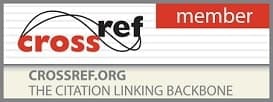- Printed Journal
- Indexed Journal
- Refereed Journal
- Peer Reviewed Journal
P-ISSN: 2394-1685 | E-ISSN: 2394-1693 | CODEN: IJPEJB
Impact Factor (RJIF): 5.38
2017, Vol. 4, Issue 1, Part C
The effect of graded repetitive arm supplementary program (Grasp) on upper limb function in activities of daily living in acute stroke patients
Author(s): Punith Kumar SN and Prem Kumar BN
Abstract:
Background and Objective: Stroke previously known medically as a cerebro vascular accident (CVA) is the rapidly developing loss of brain function due to disturbance in the blood supply to the brain. Upper limb dysfunction post stroke is prevalent with up to 70% individuals incurring paresis in the initial stage of recovery. This single group experimental study was carried out to know the effect of Graded Repetitive Arm Supplementary Program (GRASP) on arm function in Activities of Daily Living in acute stroke patients.
Method: Thirty patients fulfilling the inclusion criteria were selected and given GRASP protocol for thirty days. Chedoke arm and hand activity inventory for arm and hand function improvement (CAHAI-9), Action research arm test (ARAT) and Fugl Meyer score were used for assessment and analysis of the subjects.
Result: Significant improvement in upper limb function was observed using Graded Repetitive Arm Supplementary Program (GRASP) with a mean improvement of 4.067 in Fugl Meyer score, 5.400 in CAHAI-9 and 6.167 in ARAT.
Pages: 118-124 | 2869 Views 867 Downloads
Download Full Article: Click Here

How to cite this article:
Punith Kumar SN, Prem Kumar BN. The effect of graded repetitive arm supplementary program (Grasp) on upper limb function in activities of daily living in acute stroke patients. Int J Phys Educ Sports Health 2017;4(1):118-124.








 Research Journals
Research Journals